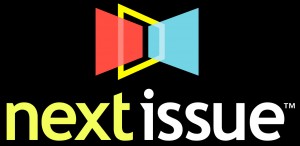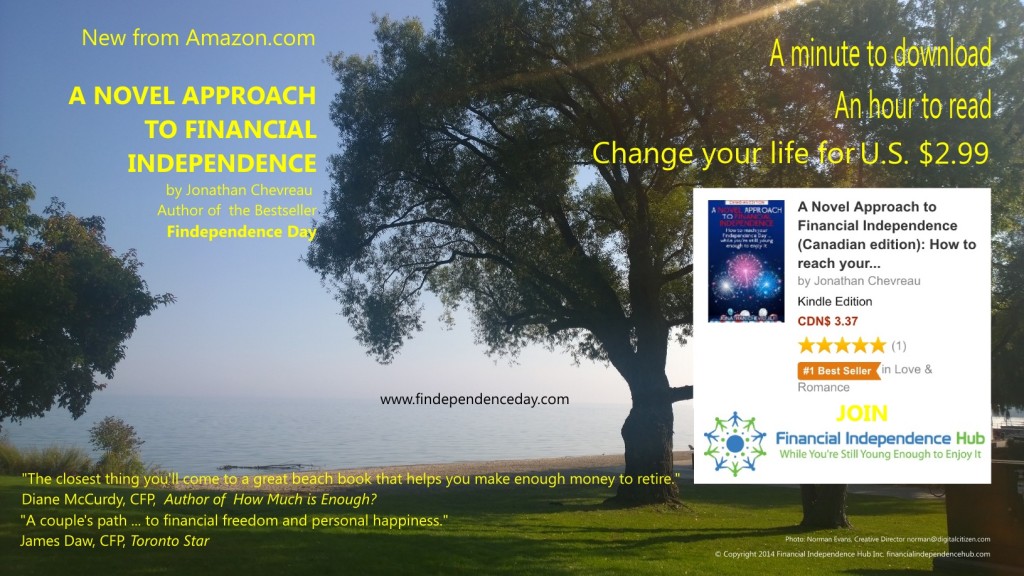
By Jonathan Chevreau
The headline on today’s blog so perfectly sums up the subtle difference between “Retirement” and “Financial Independence” (aka “Findependence”) that I felt compelled to devote a whole blog to the idea.
It was used in a guest post that began this week via certified financial planner Matthew Ardrey.
Foundation is a paid-for home
Ardrey, who is with T.E. Wealth, seems to view the topic of Financial Independence just as we do on these sites, even down to the basic principle repeated often in the book to which our sister site (FindependenceDay.com) is devoted. In Findependence Day, one of the two financial planning characters, Theo, tells his young clients more than once: “The foundation of Financial Independence is a paid-for home.”
Here’s what Ardrey tells clients just starting down the road to Financial Independence:
I’m often asked how one can get to this wonderful nirvana known as financial independence. The first step is to pay off your home. By having a debt-free residence, you have eliminated what is most people’s largest single expense. Without this hanging over your head, you have freed up significant cash-flow.
Even Ardrey mistook FI for Retirement early on
Ardrey and I have followed each other on Twitter for some time. Ardrey posts as @MattArdreyCFP. But it was only recently, in response to something on one of these sites, that Ardrey casually dropped the fact that he’s been preaching Financial Independence (as opposed to traditional Retirement) to his clients since he entered the financial planning business at the turn of the century.
He noted that the financial planning software used at the financial firm where he got his start did not have a retirement calculator. Instead it had an an analysis tool on “Financial Independence Needs.” At the time, being new to the business, Ardrey thought it was just a fancy way of referring to retirement planning but as the years progressed, “I would soon discover that financial independence was something else entirely.”
So, to return to the headline today, what exactly IS the difference? Here’s the key passage:
Retirement, by definition, is the cessation of work with the intent of not returning. Financial independence, on the other hand, is having sufficient financial assets to have the choice about whether or not you continue to work. So, one can be retired and not financially independent or vice versa.
It’s all about Freedom of Choice
This is of course pretty much what I’ve been saying, or at least the characters in the book and ebooks: “When you’re financially independent, you work because you want to, not because you have to (financially speaking).” And that’s exactly what Aubrey tell his clients:
The main differentiator is freedom of choice. If you are not financially independent, you have no choice but to continue working if you don’t want to alter other aspects of your life. Once you are financially independent, you can choose if you want to continue to work in the same capacity – or at all. This freedom to choose is empowering and it’s what I encourage all of my clients to work towards.
Some real examples
So far in this blog, I’ve reiterated Ardrey’s views. I want to close with some examples closer to home. I can think of a few friends or family members who are “retired, but not financially independent.” One couple in particular comes to mind: they do not work and live entirely on government largesse: some combination of CPP, OAS and GIS. Once upon a time they owned a home , a cottage and a car but today they rent a small apartment above a store. They have time freedom, yes, but no financial freedom. They depend entirely on the one source of income from the Government and if that dried up, I don’t know what they would do. Even with it, they are severely constrained in what they can do. So they are indeed “retired, but not financially independent.”
For the opposite situation, I need look only in the mirror. My wife and I choose to continue to work, and keep deferring future income sources that could be taken now if we chose: employer pensions, CPP, drawdowns from registered and non-registered investments, etc. Our home was paid for early in the 1990s, our cars are paid for and we have no debt. We are in fact financially independent but NOT retired, paradoxical as that may seem.
And finally …
Today is Boxing Day and I will probably CHOOSE not to do much more work on these sites, or for paying clients, until the New Year begins, apart from a few pre-arranged pieces and guest blogs. I wish all readers a very Happy New Year. See you on the other side!








